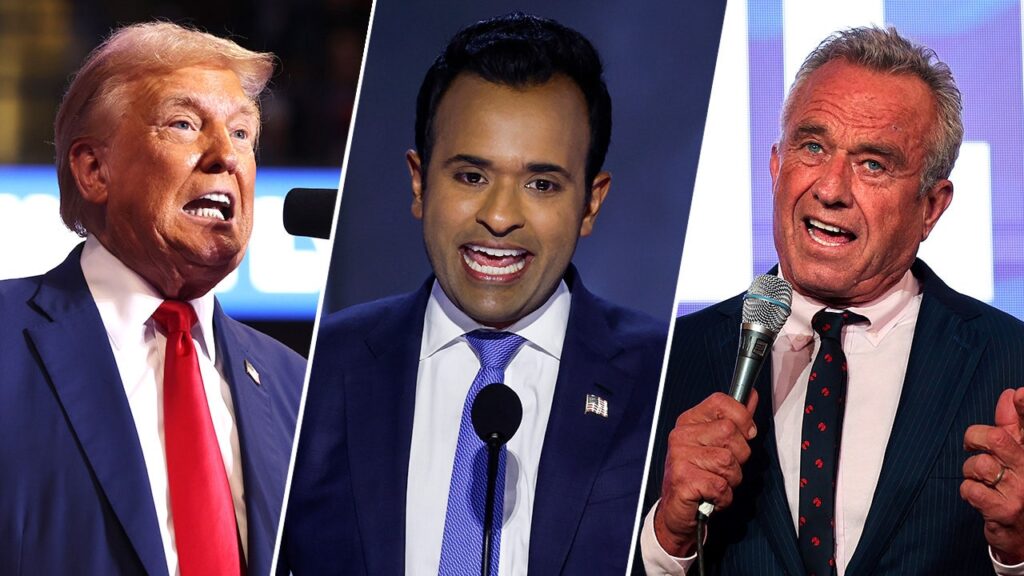WASHINGTON (AP) — House Republicans unveiled a spending bill Saturday that would keep federal agencies funded through Sept. 30, pushing ahead with a go-it-alone strategy that seems certain to spark a major confrontation with Democrats over the contours of government spending.
The 99-page bill would provide a slight boost to defense programs while trimming nondefense programs below 2024 budget year levels. That approach is likely to be a nonstarter for most Democrats who have long insisted that defense and nondefense spending move in the same direction.
Congress must act by midnight Friday to avoid a partial government shutdown.
Speaker Mike Johnson, R-La., is teeing up the bill for a vote on Tuesday despite the lack of buy-in from Democrats, essentially daring them to vote against it and risk a shutdown. He also is betting that Republicans can muscle the legislation through the House largely by themselves.
Normally, when it comes to keeping the government fully open for business, Republicans have had to work with Democrats to craft a bipartisan measure that both sides can support. That’s because Republicans almost always lack the votes to pass spending bills on their own.
Crucially, the strategy has the backing of President Donald Trump, who has shown an ability so far in his term to hold Republicans in line.

Bill Clark via Getty Images
Trump praised the bill, posting on his Truth Social platform that Republicans have to “remain UNITED — NO DISSENT — Fight for another day when the timing is right.”
“Great things are coming for America, and I am asking you all to give us a few months to get us through to September so we can continue to put the Country’s ‘financial house’ in order,” he said.
House Republicans’ leadership staff outlined the contours of the measure, saying it would allow for about $892.5 billion in defense spending and about $708 billion in nondefense spending. The defense spending is slightly above the prior year’s level, but the nondefense spending, the aides said, was about $13 billion below last year.
The measure also will not include funding requested by individual lawmakers for thousands of community projects around the country, often referred to as earmarks.
But Republicans noted that it would provide for the largest pay increase to junior enlisted servicemembers in more than 40 years, and it included an additional $500 million for a nutritional assistance program for women, infants and young children.

Kevin Dietsch via Getty Images
The bill does not cover the majority of government spending, including Social Security and Medicare. Funding for those two programs is on auto pilot and not regularly reviewed by Congress. Still, Democratic leadership issued a statement Saturday saying they were troubled the bill doesn’t take steps to protect those programs and Medicaid, which Republicans are eying to help pay for extending tax cuts passed in Trump’s first term.
“We are voting no,” said a trio of House Democratic leaders, including Rep. Hakeem Jeffries.
The top Democrats on the House and Senate Appropriations Committees, Connecticut Rep. Rosa DeLauro and Washington Sen. Patty Murray, both issued statements blasting the legislation.
Murray said the legislation would “give Donald Trump and Elon Musk more power over federal spending — and more power to pick winners and losers, which threatens families in blue and red states alike.”
Maine Sen. Susan Collins, who heads the Senate Appropriations Committee, said the focus must be on preventing a shutdown because closures have negative consequences all across government.
“They require certain essential government employees, such as Border Patrol agents, members of our military and Coast Guard, TSA screeners, and air traffic controllers, to report to work with no certainty on when they will receive their next paycheck,” Collins said. “We cannot allow that to occur.”
Trump’s request for unity appears to be having an effect. Some conservatives who almost never vote for continuing resolutions expressed much openness to one last week.
Rep. Ralph Norman, R-S.C., says he has never voted for a continuing resolution, what lawmakers often call a CR, but he is on board with Johnson’s effort. He says he has confidence in Trump and the Department of Government Efficiency, led by Elon Musk, to make a difference on the nation’s debt.
“I don’t like CRs,” Norman said. “But what’s the alternative? Negotiate with Democrats? No.”
“I freeze spending for six months to go identify more cuts? Somebody tell me how that’s not a win in Washington,” added Rep. Chip Roy, R-Texas.
Republicans are also hoping that resolving this year’s spending will allow them to devote their full attention to extending Trump’s tax cuts and raising the nation’s debt limit to avoid a catastrophic federal default.
Democratic leaders are warning that the decision to move ahead without consulting them increases the prospects for a shutdown. One of their biggest concerns is the flexibility the legislation would give the Trump administration on spending.
Go Ad-Free — And Protect The Free Press
Already contributed? Log in to hide these messages.
The Democratic leadership in both chambers has stressed that Republicans have the majority and are responsible for funding the government. They have said any legislation should have input from both parties.
“We’ve always believed the only solution is a bipartisan solution, no matter what,” said Senate Democratic leader Chuck Schumer of New York.
Trump has been meeting with House Republicans in an effort to win their votes on the legislation. Republicans have a 218-214 majority in the House, so if all lawmakers vote, they can afford only one defection if Democrats unite in opposition. The math gets even harder in the Senate, where at least seven Democrats would have to vote for the legislation to overcome a filibuster. And that’s assuming all 53 Republicans vote for it.


